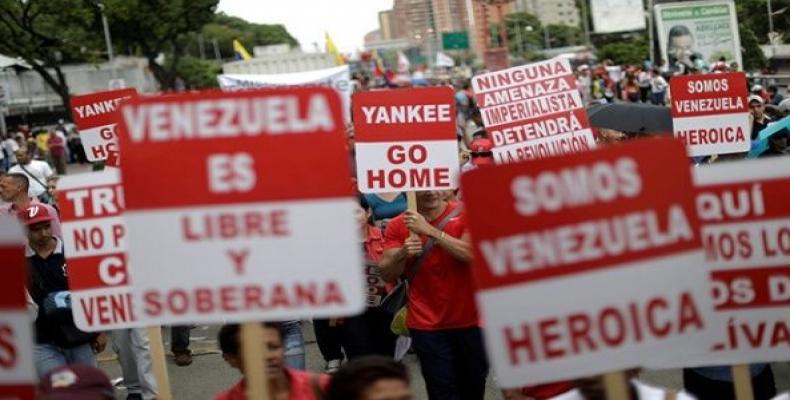Caracas, August 28 (RHC)-- The Venezuelan government has categorically rejected a public statement issued by the opposition Democratic Unity coalition, which supports U.S.-imposed economic sanctions against the country.
In an official statement issued Sunday, Venezuela's government argued that the opposition's declaration was a message of hate and violence, adding that the content had no “precedence in contemporary Venezuelan political history.”
It noted that the opposition's text clearly demonstrates that those who are politically opposed to the Bolivarian government are “openly servile to foreign interests and in accord with a military intervention in the country,” according to AVN.
The text went on to address the fact that the opposition invites not only the United States but other countries and investors to implement blockades and economically isolate the nation, concluding that the crux of its content is centered around war on Venezuela with “No-Integration, No-International Law, No-Peoples' Sovereignty, No-Dialogue, No-Democracy, No-Life.”
The statement read, in part, that it welcomes sanctions issued by any government upon those whom they describe as being “violators of human rights and looters of natural resources.”
"For the MUD, the enemy is Venezuela. We know that this is not a sanction against President Nicolas Maduro, it is a sanction against 30 million Venezuelans, and especially the eight million (who voted in the National Constituent Assembly vote) and the many more who could not leave their homes on July 30th," the official declaration asserted.
The opposition's statement comes fresh on the heels of the latest round of economic sanctions imposed on Venezuela by the U.S. government. The new measures ban trades of Venezuelan debt and prevent the country's state-run oil company, PDVSA from selling new bonds to U.S. citizens or financial groups. Trades of existing bonds commissioned by Caracas will also be barred.
The new sanctions aim to block Venezuela from raising new loans on U.S. financial markets. They are expected to make it difficult for the government of President Nicolas Maduro to restructure its debt payments and are likely to aggravate the shortages of some foods and other products for Venezuelan consumers.
Earlier in the month, President Donald Trump said he did not exclude a military option in Venezuela.
Venezuela Rejects Opposition's Statement Supporting Sanctions


